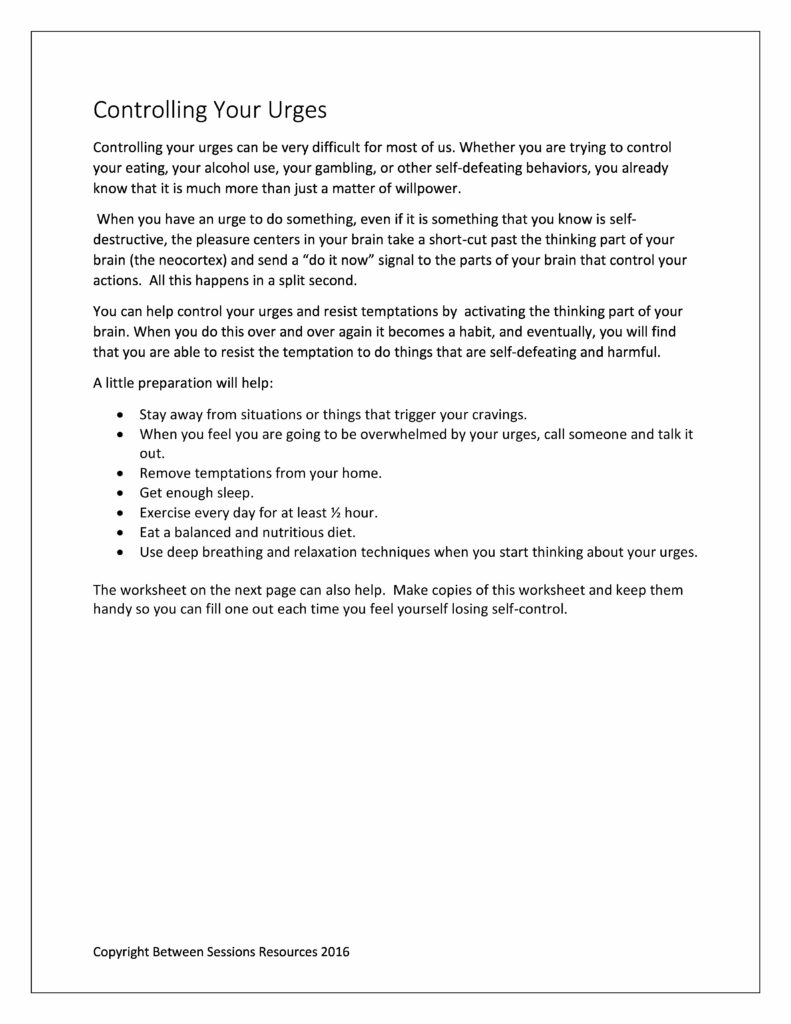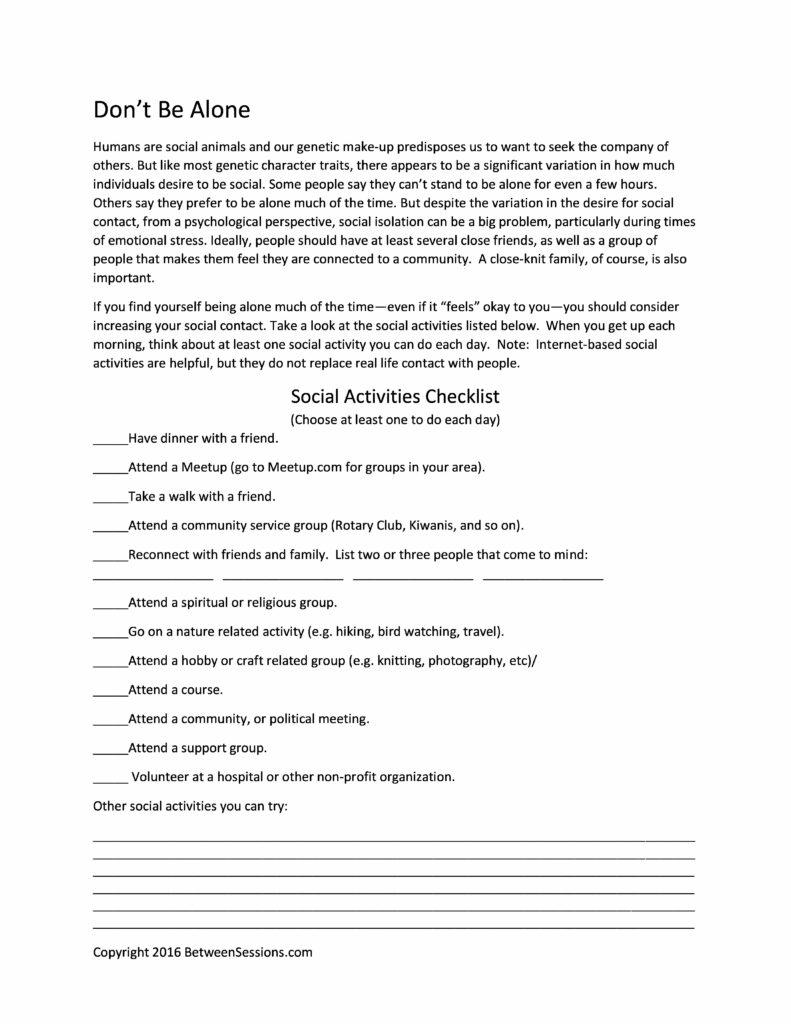Our coaching forms cover a wide variety of issues in the areas of self-growth, life skills, and wellness.
To modify the tools, click the ‘Send to Client’ button by each tool to open our Psychology Forms Filler. You can edit the tool as you see fit and then either print it out or send it to a client to be filled out online. Click here for a tutorial on using the Psychology Forms Filler.
Use the navigation links on the left of this page to view tools in a specific category. Or use the search function at the top of this page to find the exact tool you are looking for.
If you can’t find what you are looking for on this site, please let us know by
clicking here and our team of writers, graphic artists, and therapists will custom-design it for you.
This worksheet is designed to help people tolerate distressing thoughts. It asks people to visualize several “disgusting” images and be aware of them without judgment. Then it asks people to visualize a situation that typically causes them anxiety and rate how well they are at being mindful over a period of seven days. (mindfulness, panic attacks, anxiety, 0916)
This worksheet is designed to help individuals examine their irrational catastrophic thinking and their subsequent avoidant behavior. (panic attacks, anxiety, CBT, 0916)
This worksheet is designed to help people control their urges by activating the thinking part of their brains and make decisions that will interrupt the cycle of self-defeating behaviors. (addiction, self-control, impulse control, 0816)
This worksheet is designed to help people identify and prioritize the situations or places that they currently avoid because they cause anxiety. (panic attacks, agoraphobia, CBT)
This worksheet is designed to help people develop insight into their problem behaviors, including the positive as well as the negative consequences. The worksheet is intended to help people step back from just judging themselves negatively and to see how their problem behaviors play a functional role in their daily lives. This worksheet can be used in writing a CBT oriented treatment plan. (CBT, DBT)
Learning to accept reality is an important part of living in the present. Distorting reality can lead to depression, anxiety, disappointment in your relationships and more. This worksheet has three parts to help people understand how they distort memories from their past, events in the present, and thoughts about their future. (DBT, CBT, Thought-Changing, 0916)
This tool was prepared by the Australian Center for Clinical Interventions and is intended to help people learn to challenge their faulty assumptions about their bodies. It will be helpful for many people who dwell on the imperfections of their body, but particularly those with Body Dysmorphic Disorder. (OCD, anxiety disorders, eating disorders, self-injury, 0716).
These two worksheets are designed to help people deal with obsessive thinking. The first worksheet asks people to write down and rate their upsetting thoughts. The second worksheet asks people to imagine their upsetting thoughts are on clouds, and to let them float away without reacting to them. (OCD, CBT, exposure therapy, anxiety, 0717).
This worksheet is designed to help people experience the positive effects of awe. (CBT,ACT, happiness, values, depression)
This worksheet is designed to help people see the importance of social activities as an integral part of mental health. It gives individuals a list of possible social activities to do each day. (Asperger Syndrome, depression, social development, 0616)










